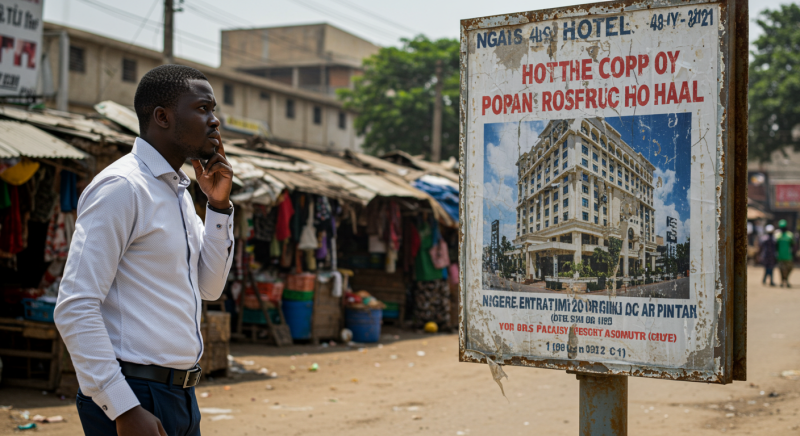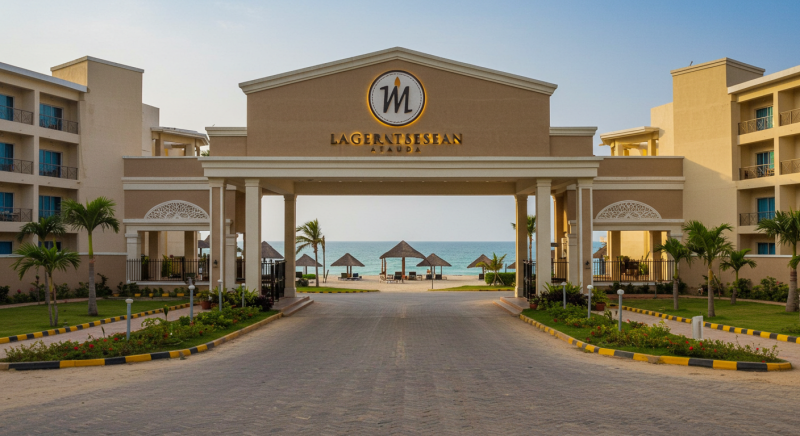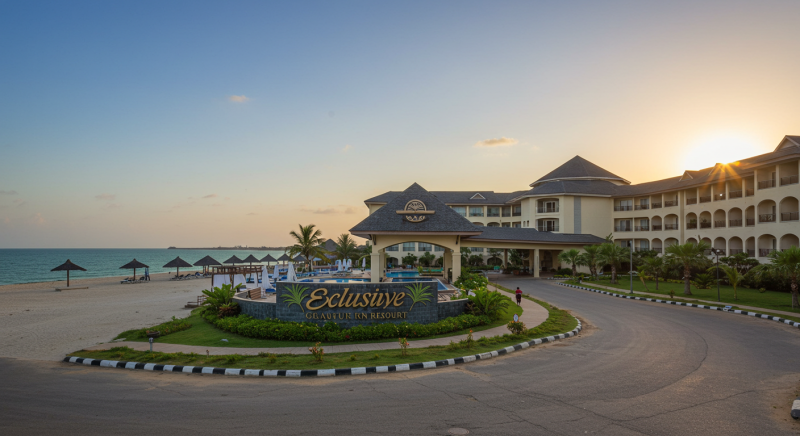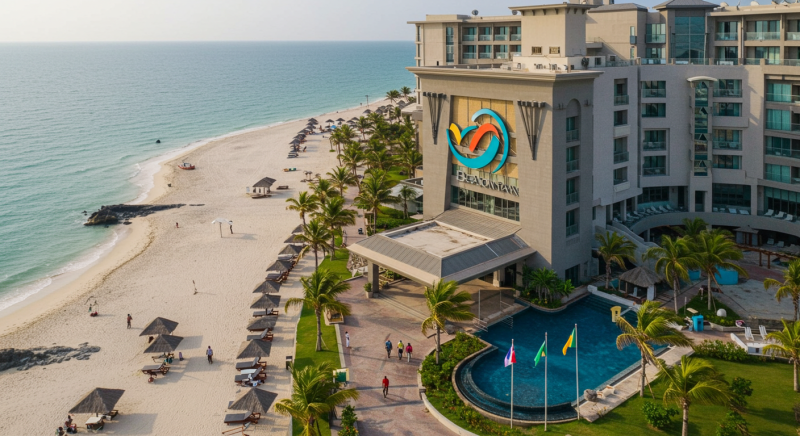What If Your Brand Vanished Tomorrow? Safeguarding Nigeria’s Hospitality and Tourism Legacy
What would happen if another business copied your hotel’s name, logo, or slogan tomorrow—and you had no legal grounds to stop them? For countless Nigerian entrepreneurs in the hospitality and tourism sector, this question isn’t hypothetical. Stories like Calabar Breeze Resort, a fictional beachfront retreat that lost its identity to a copycat, highlight a harsh reality: without trademark registration for Nigerian hospitality and tourism businesses, your brand’s survival hangs in the balance.
With Nigeria’s tourism industry poised for explosive growth—fueled by global fascination with Afrobeats, Nollywood, and cultural hubs like Lagos and Abuja—securing your brand isn’t just smart; it’s existential.
Key Takeaways
Trademark registration grants exclusive rights to your brand’s identity, shielding it from imitation while boosting customer trust. Nigeria’s registration process involves critical steps like trademark searches, class selection, and publication. Hospitality brands must prioritize Class 43 (hotel and restaurant services) under the NICE system. Foreign businesses need local agents to navigate regulations, and renewals every 14 years ensure lasting protection.

Understanding Trademark Registration for Nigerian Hospitality and Tourism Businesses
In an industry where reputation is currency, your brand name, logo, or tagline is your most valuable asset. A trademark legally distinguishes your services from competitors, ensuring customers associate your offerings with quality. For example, a trademarked name like Abuja Luxe Tours becomes synonymous with reliability, while unregistered brands risk confusion—or worse, exploitation.
The Registration Process: A Step-by-Step Guide
Navigating trademark registration for Nigerian hospitality and tourism businesses requires precision and patience. Below is an expanded breakdown of each phase to ensure your brand secures the legal protection it deserves:
-
Conduct a Trademark Search
The journey begins with verifying that your desired brand name, logo, or slogan isn’t already claimed. Nigeria’s Trademarks Registry in Abuja maintains physical records, as the system isn’t fully digitized. This step is critical for hospitality businesses—imagine launching a boutique hotel in Lagos only to discover another “Haven Suites” already exists. Partnering with a local trademark agent simplifies this process, as they’ll manually comb through records to avoid conflicts. Skipping this step risks rejection or future lawsuits, derailing your business before it gains momentum. -
File Under the Correct Classes
Nigeria uses the NICE Classification system, which groups trademarks into 45 categories. For trademark registration for Nigerian hospitality and tourism businesses, Class 43 (temporary accommodation, food services) is mandatory. However, holistic protection may require additional classes. For instance, a travel agency might need Class 39 (transportation, travel planning), while a hotel offering event spaces could benefit from Class 41 (entertainment services). Each class requires a separate application, as Nigeria doesn’t allow multi-class filings. Misclassification leaves gaps—a restaurant that forgets Class 43 could lose its branding to a rival eatery. -
Submit Application and Power of Attorney
Once your trademark is deemed unique and classes are finalized, submit your application to the Trademarks Registry. Foreign applicants must appoint a Nigerian-accredited agent to act on their behalf. Required documents include a completed application form, a high-resolution JPEG of your logo (1200 dpi), and a signed Power of Attorney. For hospitality brands, visuals matter—a hotel’s logo often incorporates cultural motifs or local landmarks, so clarity in the design file ensures no details are lost during processing. -
Examination and Publication
The Registrar reviews your application for distinctiveness and compliance with local laws. Generic terms like “Premium Hotel” may be rejected for lacking uniqueness. If approved, your trademark is published in the Nigerian Trademarks Journal, triggering a two-month opposition window. This phase is a litmus test—competitors or third parties can challenge your claim. For tourism businesses, which thrive on originality, publication solidifies your public stake in the brand. -
Handle Oppositions and Secure Registration
If no oppositions arise—or if disputes are resolved in your favor—the Registrar issues a certificate valid for seven years. Renewal every 14 years ensures perpetual protection. Forgetting to renew is akin to leaving your hotel’s doors unlocked; it invites copycats to exploit your hard-earned reputation.

Why Trademark Registration Is Non-Negotiable for Nigerian Hospitality and Tourism Businesses
In Nigeria’s fast-growing hospitality and tourism sector, trademark registration for Nigerian hospitality and tourism businesses isn’t a luxury—it’s the bedrock of long-term success. Without it, your brand remains vulnerable to imitation, legal disputes, and lost opportunities. Here’s why securing your trademark is an urgent priority:
1. Legal Defense Against Brand Hijackers
Imagine a rival hotel in Abuja using your logo, or a Lagos-based tour agency copying your slogan to lure your customers. Without trademark registration for Nigerian hospitality and tourism businesses, you’d lack the legal authority to stop them. A registered trademark empowers you to sue infringers for damages, demand rebranding, or secure injunctions. For example, a trademarked hotel chain like Eko Heritage Suites could swiftly shut down a copycat using its name, preserving its reputation and revenue. In a competitive market where brand identity drives customer trust, this legal shield isn’t optional—it’s survival.
2. Building Unshakeable Brand Equity
A trademark transforms your brand into a recognizable symbol of quality. Consider Zuma Grill, a fictional Lagos restaurant whose registered name becomes synonymous with authentic Nigerian cuisine. Over time, customers associate the trademark with consistency, fostering loyalty in a crowded market. For tourism ventures like Calabar Cultural Tours, a trademarked logo featuring local art styles distinguishes their services from generic competitors. Trademark registration for Nigerian hospitality and tourism businesses cements this identity, turning casual visitors into lifelong patrons.
3. Unlocking Franchise and Licensing Opportunities
Scaling your business often hinges on partnerships. A registered trademark allows you to license your brand to franchises or collaborators, creating revenue streams without direct oversight. For instance, a trademarked resort brand in Port Harcourt could expand to Enugu through franchising, with partners paying fees to operate under its trusted name. Without trademark registration for Nigerian hospitality and tourism businesses, these opportunities vanish—no investor will partner with a brand that lacks legal exclusivity.
4. Laying the Groundwork for Global Expansion
While Nigeria isn’t part of the Madrid Protocol for international trademarks, local registration strengthens your position for future cross-border ventures. A trademarked safari company in Abuja, for example, could leverage its Nigerian registration to negotiate partnerships in Kenya or South Africa. Global brands like Radisson Blu began with strong local protection—trademark registration for Nigerian hospitality and tourism businesses sets the stage for similar growth.
5. Safeguarding Cultural and Economic Contributions
Nigeria’s hospitality sector thrives on cultural authenticity, from Jollof-themed bistros to eco-resorts celebrating Yoruba heritage. Trademarks protect these unique identities, ensuring that imitators don’t dilute cultural narratives for profit. Moreover, with tourism contributing billions to Nigeria’s GDP, trademark registration for Nigerian hospitality and tourism businesses safeguards an industry vital to national economic growth.
In a market where originality defines success, delaying trademark registration for Nigerian hospitality and tourism businesses risks everything you’ve built. From shielding against copycats to enabling global ambitions, your trademark isn’t just paperwork—it’s the lifeline your brand cannot afford to ignore.

Avoid These Costly Mistakes
-
Misclassifying Services: Skipping Class 43 leaves core hospitality offerings vulnerable.
-
Lapsed Renewals: Forgetting to renew every 14 years forfeits your rights.
-
Skipping Professional Help: DIY applications often fail due to Nigeria’s bureaucratic complexity.
FAQs on Trademark Registration for Nigerian Hospitality and Tourism Businesses
Q1: How long does the process take?
Expect 12–24 months, depending on administrative delays or oppositions.
Q2: Can foreign businesses trademark in Nigeria?
Yes, but they must appoint a Nigerian agent to file applications.
Q3: What’s the cost range?
Between 600and1,000, covering agent fees, searches, and government charges.
Q4: Are slogans protectable?
Yes! Distinctive phrases like Taste of Naija qualify for trademark protection.
Q5: What if someone steals my trademark?
You can pursue litigation, negotiate settlements, or seek injunctions.
Conclusion: Your Brand’s Future Starts Today
Nigeria’s hospitality and tourism sector is a goldmine, contributing billions annually to the economy. Yet without trademark registration for Nigerian hospitality and tourism businesses, your brand remains exposed to theft, dilution, or legal battles. Take inspiration from giants like Transcorp Hilton or Chocolate City Entertainment: secure your identity now, and watch your legacy thrive.
read more
External Resources:
By prioritizing trademark registration for Nigerian hospitality and tourism businesses, you’re not just protecting a logo—you’re defending your dreams and Nigeria’s cultural heartbeat.
